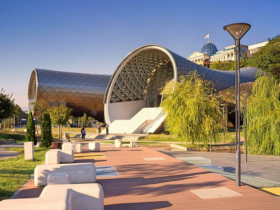Cutting the next culinary masterpiece, abundantly sprinkled with something “black”, we rarely think that the beneficial properties of poppy are not limited to the infamous opium component that is part of it. I wrote this line and thought, but in fact, I don’t know any other properties of this plant … I think that I am not alone, so we will eliminate this gap.
And so, Mac is a plant belonging to the poppy family. The view has dozens of representatives, but the most popular is a sleeping rod (Papaver somniferum, aka opium poppy), whose cultivation has occurred for many millennia. Confirmation of this fact – poppy grains, were found in Switzerland on excavations of pile buildings from the Neolithic times, which made it possible for scientists to establish the approximate age of the plant.
I would like to note that Papaver Somniferum played a huge role in the life of Europeans, who raised it as Shrovetide culture and residents of Central Asia, where the main goal of the cultivation of poppy was opium. It is noteworthy that during the reign of Charles the Great, a tax on poppy seeds was established – on average peasants were obliged to give the state about 26 liters of poppy juice. One of the first about the dangers of excessive passion for poppy was a botanist and doctor Jacob Theodorus, who in the 16th century released a book called “Juice of poppy seeds”, where he described in great detail not only the beneficial properties of the object of our study, but also its possible harm.
Today, the poppy is actively used in cooking, in the manufacture of confectionery and baking, it is not rarely sprinkled with halva and used as a filling. In addition, oil is obtained from poppy seeds, which has become simply indispensable in tinning production, pharmaceuticals, perfumes. Opium (thickened poppy juice) is distinguished from unripe poppy boxes, from which morphine, codeine and papaverine are obtained – substances that serve as the basis for most medical drugs.
The beneficial properties of poppies are not limited only to its medical use. It has a lot of carbohydrates (75%), proteins (about 15%); The plants of plants contain flavonoids, anthocials, glycosides, organic acids, gum and vitamin C and calcium (1460 mg per 100 g – a fairly high indicator). Our ancestors also used such a rich set of “utilities”, who, firstly, believed that Mac could protect the house from unclean power, and a person from the evil eye, and secondly, they were sure that a decoction of seeds of this plant would help improve digestion , and the tincture of roots will “help out” with inflammation of the sciatic nerve and migraines.
At the moment, this list can be slightly expanded, because representatives of traditional medicine unanimously claim that the means created on the basis of poppy petals are indispensable for bronchitis and insomnia, in addition, they can be successfully used as an anti -armpit agent. Modern traditional medicine also recognizes the advantages of poppy, therefore, many pharmaceutical companies produce drugs, which include this plant extract. The following potent drugs are made from poppy seeds: the morphine already mentioned by me (analgesic, sleeping pills), codeine (expectorant), papaverine (used for bronchial asthma, angina pectoris, duodenal ulcer, colitis), nartsein and drugs, the use of which is not acceptable without purpose and control doctors.
The poppy is very calorie!
As for contraindications, in large quantities the product is contraindicated in the case of individual intolerance, as well as young children and older people. And yet, the poppy is a very high -calorie product – the energy value is approximately 525 kcal per 100g, so people with overweight also do not need to lean on it.
Of course, the beneficial properties of poppy are not so wide and diverse as, for example, spices, but the fact that the product will not do any harm, and even strengthen health is a fact!







